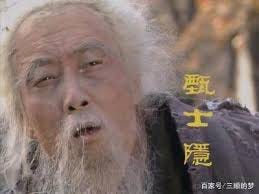The Bootstraps Myth
It’s hard to not feel sympathy for Zhen Shiyin.
As we’ve seen over the past few posts, he’s lost everything. His infant daughter went missing, and the servant who had her most recently ran off. His house burned down thanks to no fault of his own. He had to sell his land at a loss, lost his means of livelihood, and wound up living with his father in law, who proceeded to rip him off and besmear his good name.
And what happens in the end?
In the end, Zhen Shiyin is greeted by the Taoist priest again. And all the priest can do is give him a useless poem, telling him in a mocking manner that everything in the world is useless and will only go away in the end.
Now, if I wanted to, I could give you a long essay about the nuances of the poem at the end of the most recent segment. I could tell you about the “four worldly attachments” that the poem mocks, about what the state of religious and moral thinking was like in the Qing dynasty, and about how to properly consider the poem on its cultural niveau.
But I’m not going to do that. That’s boring, sounds too much like academic work, and relegates Dream of the Red Chamber to the bookshelf where all the dust is gathered.
The truth is that the story of Zhen Shiyin was meant to be a living story. It’s a criticism of the callousness of society. And we just so happen to live in a society today that is equally callous, one in which people mock the plight of the less fortunate and convince themselves that the only way forward is by pulling oneself up by the bootstraps.
So stick with me, and let’s see why Dream of the Red Chamber is even more relevant in 2025 than it was in 1792.
Keep reading with a 7-day free trial
Subscribe to Dream of the Red Chamber to keep reading this post and get 7 days of free access to the full post archives.




